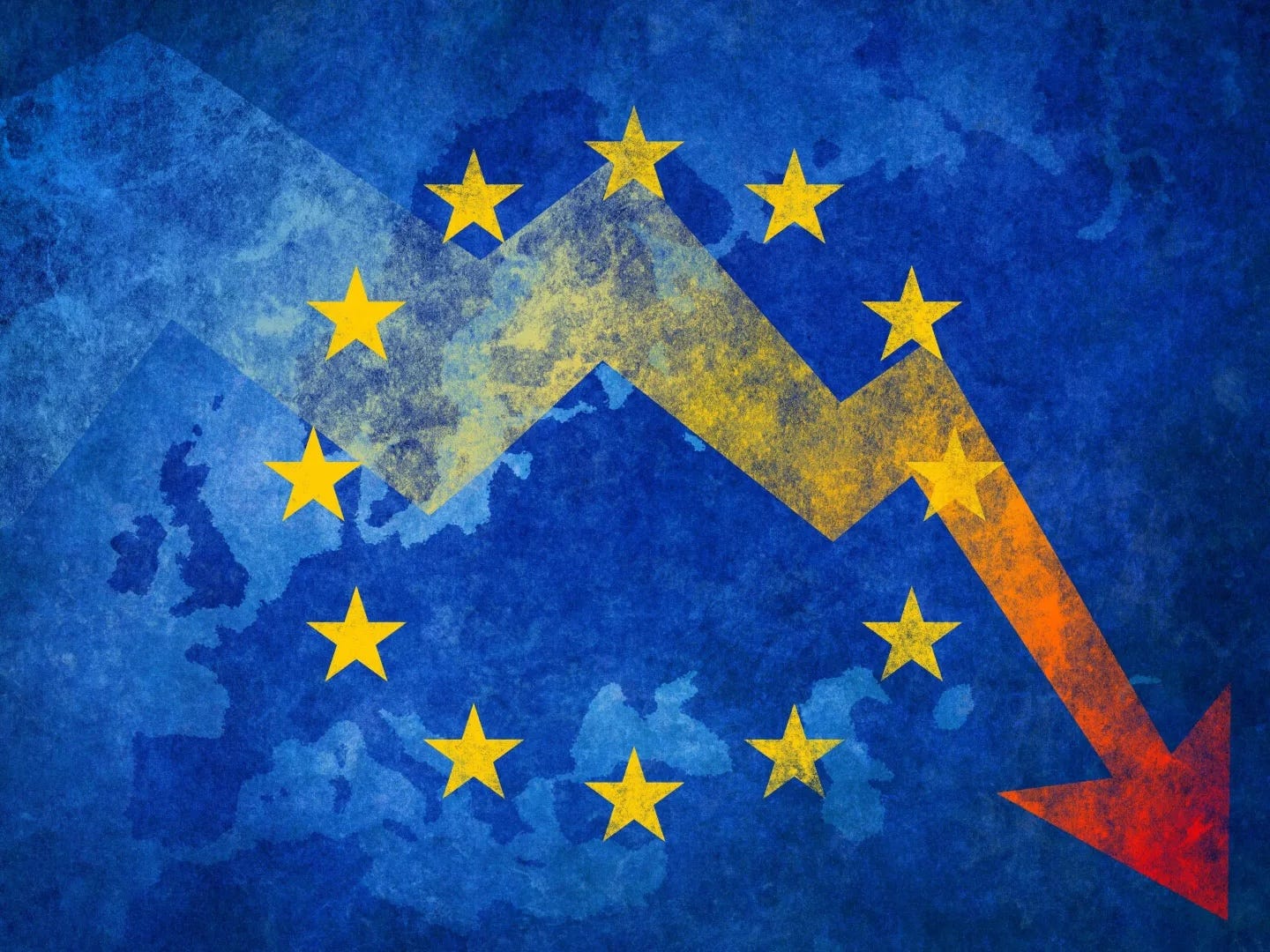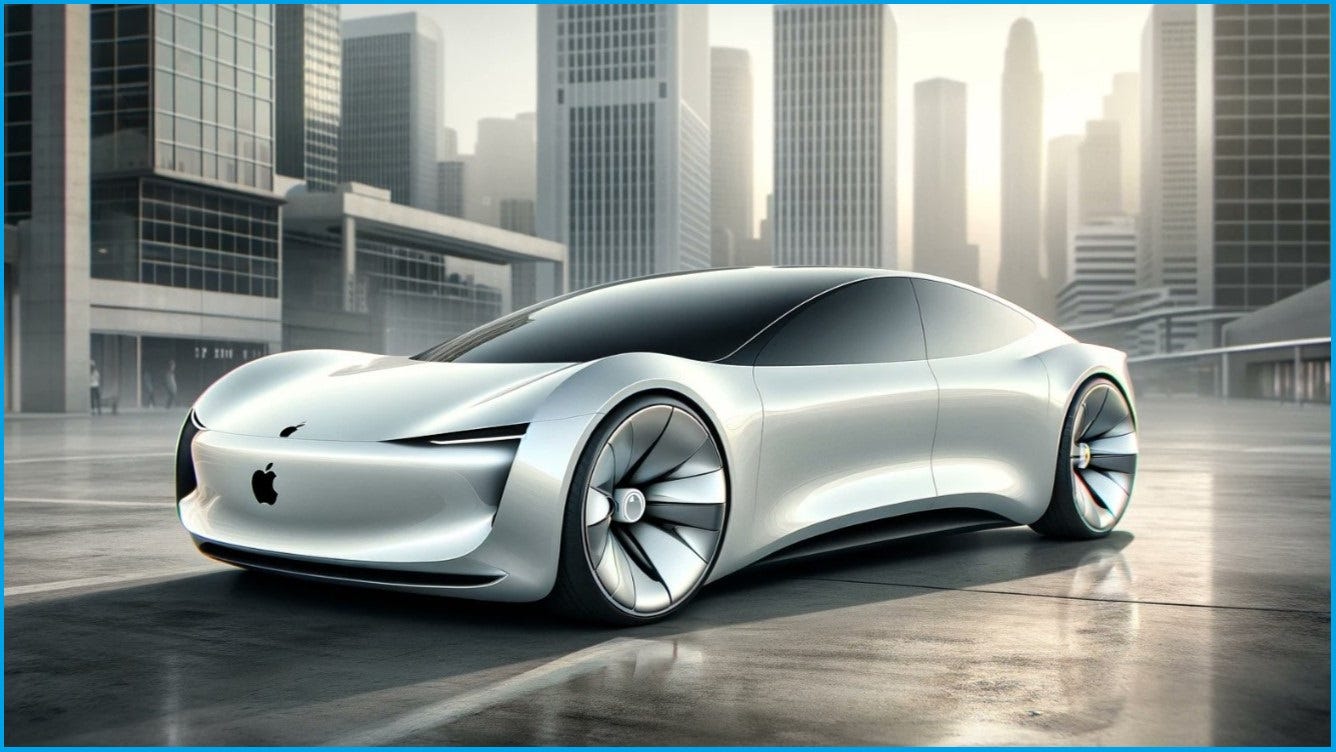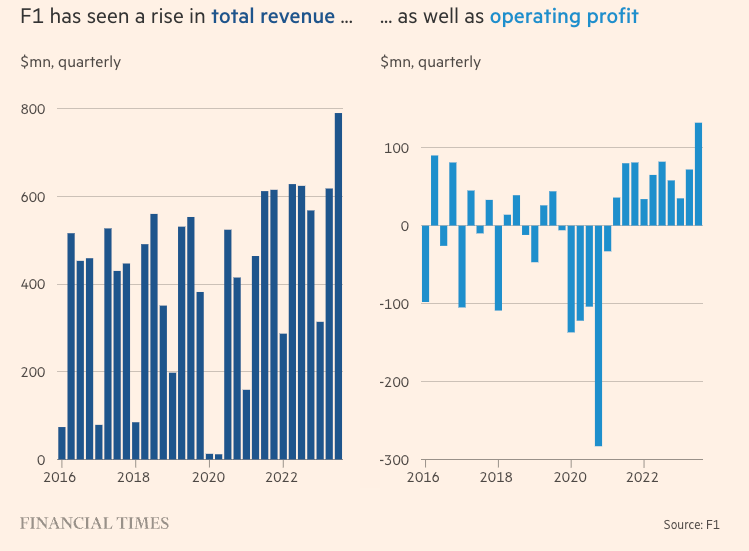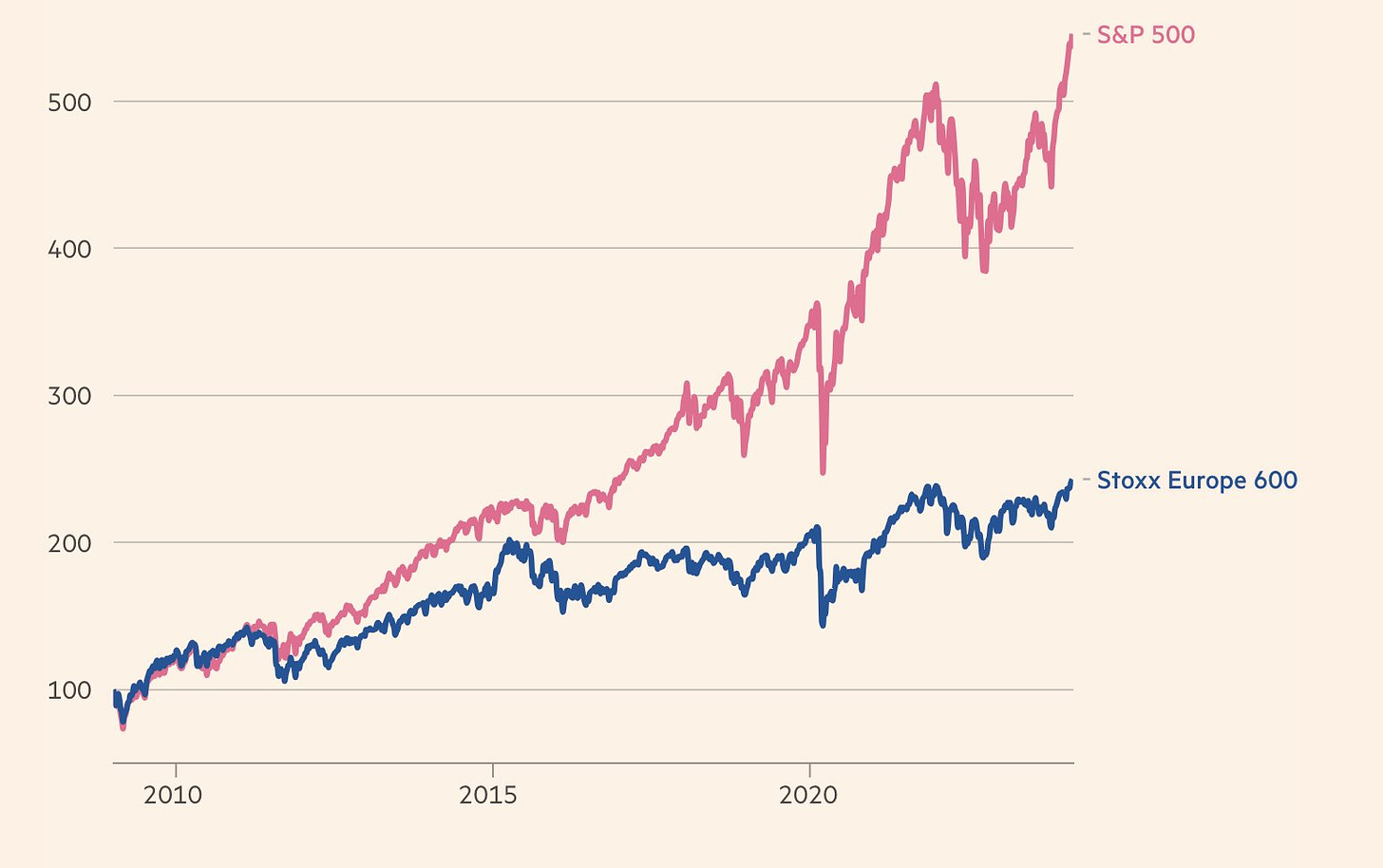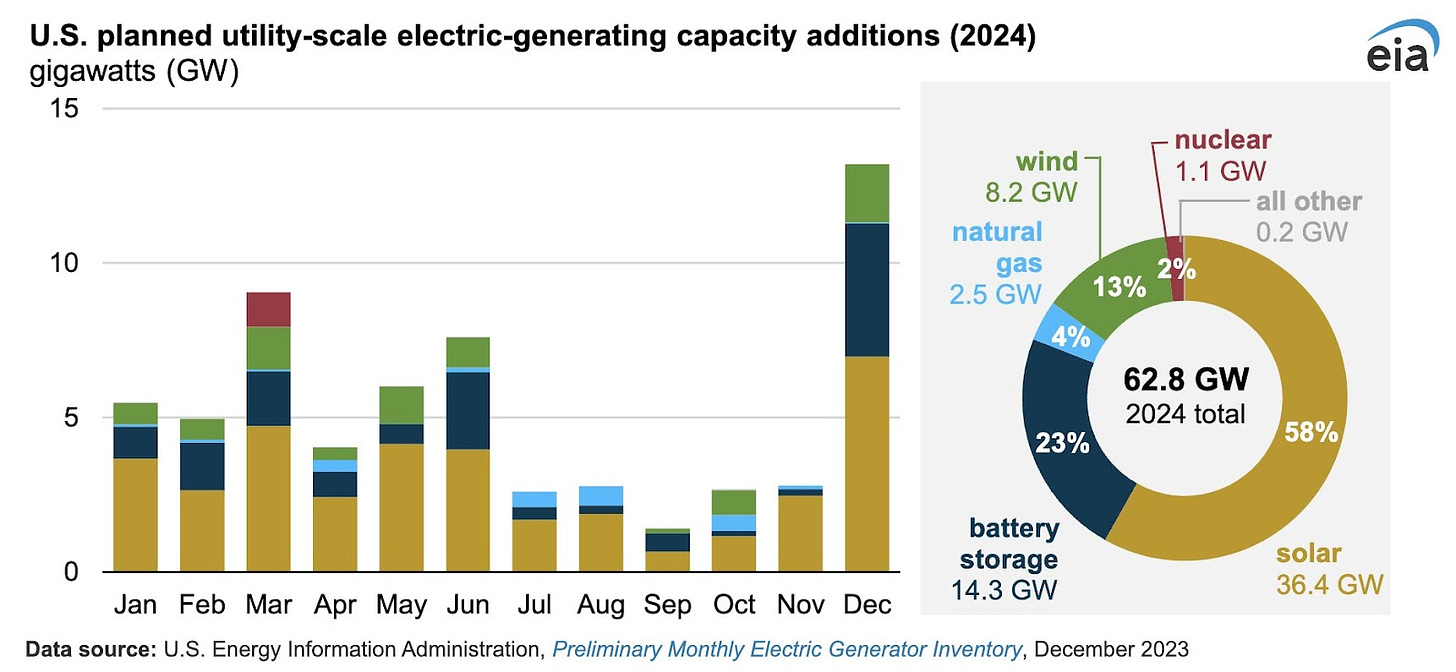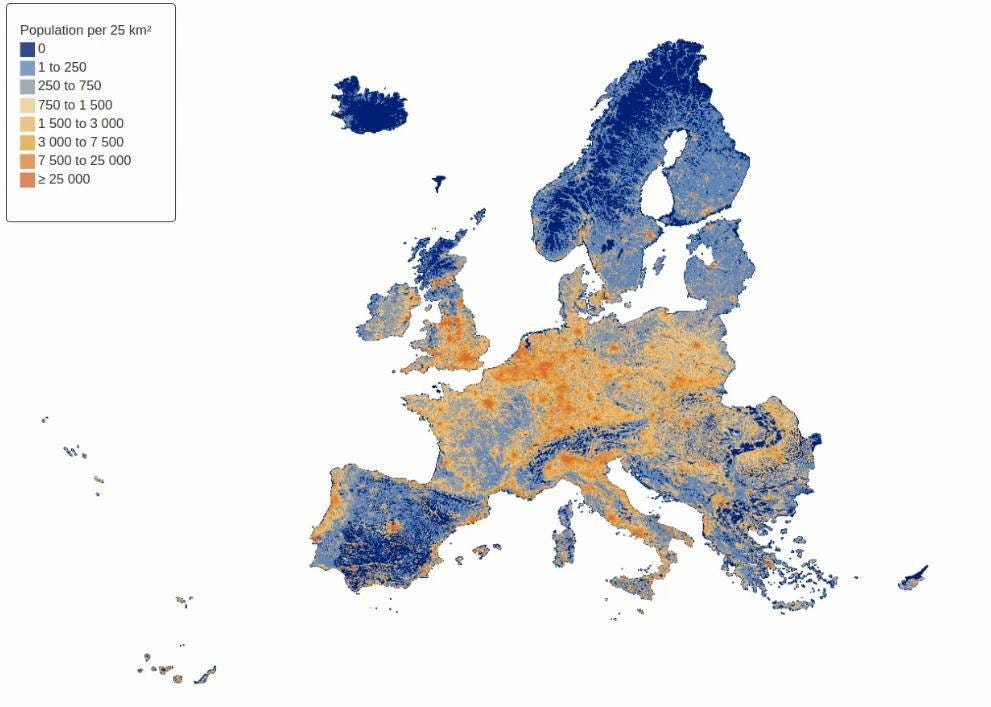(#64) Why Apple's car project failed; Huawei gets banned in Romania; Europe in 2024; Texas builds. Be like Texas!
Formula 1 became the 2nd most important sport in the world, after football (soccer)
Knowledge Partner: EY
Download the latest edition of EY Attractiveness Survey Romania, an in-depth study designed to help businesses make investment decisions.
Findings are based on the views of representative panels of international and local decision-makers. Click HERE.
Today’s menu
Why Apple’s car project failed
Google’s lost way
Europe in 2024: Crisis unfurls
AI automation (at Klarna)
Formula 1 became the 2nd most important sport in the world, after football (soccer)
Strategy
Ming-Chi Kuo about the Appel’s Vision Pro supply chain
1/ U.S. market demand
Initially, Vision Pro saw a significant demand spike with pre-orders selling out soon after the opening on January 19th. However, demand quickly plateaued, leading to an improved shipping time of 3-5 days by early March, indicating a slowdown.
2/ Shipping and sales forecast
Despite exceeding Apple's original U.S. shipment estimates, rising from 150,000–200,000 units to 200,000–250,000 units for the year, Vision Pro is categorized as a niche product within the market.
3/ Global release strategy
Given the stagnant demand growth in the U.S., advancing the global release could be favorable, contingent upon the supply situation and necessary software modifications for regulatory compliance. The exact timing will hinge on Apple's readiness.
4/ Supply chain dynamics
After a surge of interest from early adopters, Apple instructed suppliers to increase production from 500,000–600,000 units to 700,000–800,000 units this year. This expansion aims to cater to global demand and reduce shipping times post-global launch.
5/ The return rate for Vision Pro stands at less than 1%, with a notable portion attributed to setup difficulties faced by users. This suggests overall satisfaction but highlights a potential area for improvement in user experience.
6/ Future models speculation
Despite market speculation around new models with altered specs, my research indicates no official commencement on such projects by Apple. The focus seems to be on production efficiency and supply chain management for the near future, with significant spec changes unlikely before 2027.
7/ User feedback and development
Apple is actively collecting user feedback for Vision Pro's product development roadmap. However, any substantial revisions to the current model's specifications are not anticipated to enter mass production until 2027, reflecting a strategic focus on incremental improvements.
Conclusion:
Vision Pro's market impact remains limited, with 2024 shipment estimates adjusted to 650,000–700,000 units, up from an initial 500,000. The key factors for transitioning Vision Pro to a mass-market product include application diversity, pricing adjustments, and enhancements in wearing comfort. These elements are critical for its future success and broader market adoption. LINK
Huawei gets banned in Romania (ie. 5G networks)
Strand Consult has a take on this unsurprising position, but here is one of their points:
“In 2017, China implemented a National Intelligence Law which compels any Chinese subject to conduct espionage on behalf of the government (article 7). While ordinary citizens can be compelled to spy, operationalizing passive surveillance within networks through backdoors and other means is more effective. Given the increasing integration of software in network equipment, these backdoors are increasingly difficult to detect, as they can be shipped in subsequent software upgrades or activated after security clearances are concluded.” LINK
A must-read for everyone who wants to understand how espionage works.
Google’s lost way
Business Insider has a long take on how Google’s broken culture
1/ Google, once Silicon Valley's epitome of innovation, now grapples with being perceived as a dinosaur, overshadowed by its own ambitions and competitors like OpenAI, hence confirming that companies can only go from point A to B, not to C.
2/ The launch of Gemini 1.5, a promising AI model, was quickly eclipsed by OpenAI's video-generating tool, Sora, highlighting Google's struggle to maintain its innovative edge, despite inventing the transformer (which stays at the core of Generative AI)
3/ Controversies around racial inaccuracies in its image generation tool and criticisms of its corporate culture underscore challenges in balancing innovation with ethical concerns and public expectations, confirming once again the saying “go woke, go broke”
4/ Despite significant revenue growth under CEO Sundar Pichai, Google's reliance on advertising revenue and inability to diversify or innovate at past rates have fueled narratives of stagnation and conservatism. Many have argued that Google needs now a war-time CEO, not a peace-time CEO. LINK
5/ The comparison with Microsoft's resurgence under Satya Nadella suggests the potential for a turnaround, but Google faces a critical juncture requiring radical changes to reclaim its status as a leader in innovation and culture.
I’m afraid that for Sundar Pichai the time has gone. Google needs a new leader. LINK
Europe in 2024: Crisis unfurls
Neville Hill from Bain presented his forecast for Europe in 2024:
1/ Economic outlook
Europe faces a weak economic outlook, teetering on the brink of recession due to restrictive monetary and fiscal policies, and declining exports influenced by global growth weaknesses.
2/ Institutional deficiencies
Significant institutional failings remain unaddressed within the EU, including the lack of an effective EU-wide fiscal policy and foreign defense policy, which exacerbate economic and political fragilities.
3/ Inflation and monetary policy
High inflation led to a stringent monetary policy by the ECB, reducing credit demand. Inflation is expected to fall below the ECB's target, with labor market pressures persisting.
4/ Fiscal policy challenges
Abrupt tightening of fiscal policy and spending cuts, especially in Germany, are expected to have severe political and economic repercussions.
5/ Consumer spending and corporate profits
Despite the potential for real disposable income growth, consumer spending remains weak, and rising labor costs are squeezing corporate profits, indicating a looming recession.
6/ Political Climate
The economic weakness is likely to influence political efforts negatively, with structural problems within the EU exacerbating the situation. LINK
TikTok ban in the US
A new bipartisan bill was proposed in Congress aiming to mitigate significant national security concerns attributed to TikTok. This initiative reflects a common understanding in Washington regarding TikTok's potential risks, despite skepticism rooted in political divisions and rumors of the platform's extensive lobbying efforts. Contrary to the doubts of cynics about legislative action due to division or influence, this development illustrates America's capacity for unexpected outcomes in addressing security issues. LINK
Bloomberg has a long piece on why Apple failed on the car project.
Basically, they had two go-to strategies:
1/ Build a Tesla competitor and iterate on it
2/ Build around full automation.
Apple lacks a distinctive technological or user interface (UI) advantage in the automotive and television sectors. This is evident in their decision to not manufacture TVs, focusing instead on the AppleTV, and suggests a similar approach should apply to conventional cars and electric vehicles (EVs). The company's existing products like iPhones and CarPlay already serve the auto industry adequately without the need for Apple to produce actual vehicles. LINK
Artificial Intelligence
Palazzo - an AI interior design platform called Palazzo
There are two major use cases for GenAI: companion (work in progress) and creativity (e.g. writing, creating, summarizing, etc). LINK
AI automation
Each year I do a presentation on what's coming next: business, tech, and (new) business models.
When it comes to Generative AI most think that its most important use is automation. Preliminary research and use cases (potential or actual) reveal that it will affect 4 areas: solitude/companionship, creativity (text, photo, video), productivity (co-pilot), and robotics (humanoids).
Now Klarna says that Gen AI is doing the work of 700 people…that it fired. LINK
Data for training is new gold
Tumblr and WordPress posts will reportedly be used for OpenAI and Midjourney training. LINK
As said last week, all AI models will be commoditized and maybe the real gold will be training data. LINK
Things Happen
Jensen Huang, Founder and CEO of NVIDIA, interview at Stanford Graduate School of Business. LINK
Keily Blair, OnlyFans: ‘We are an incredible UK tech success story”. LINK
Inside the miracle of modern chip manufacturing. LINK
Goldman Sachs Wealth Management CIO: “Don’t invest in China!” LINK
Dyson worked on an EV for a couple of years but ultimately canceled the project. LINK
Data
Formula 1 became the 2nd most important sport in the world, after football (soccer)
A strategy worth pursuing: go on Netflix!
“Formula One’s annual revenue increased to $3.2bn in 2023, up from about $2.5bn a year earlier. Operating profit increased by 64 per cent year on year to $392mn. But on the eve of F1’s new season, which gets under way in Bahrain this weekend, the sport is grappling with obstacles that might impede future growth. The championship has rarely been less competitive, its environmental footprint is a growing concern and its male-dominated workforce is becoming harder to ignore.” LINK
USA vs EU
Lesson: regulation drives growth away!
Solar + battery storage = the future
In 2024, it is projected that solar and battery storage systems will account for 81% of the new electricity generation capacity in the United States. LINK
Population density in Europe.
Outside Interest
A delightful icon system. LINK
In Chicago, 75% of homicides stem from disputes or confrontations that escalate excessively. LINK
In the United States, the average refrigerator consumes three to five times more electricity than the total energy usage of an individual in Nigeria. LINK
Texas builds. Be like Texas!
Austin (Texas) 2014 vs 2023

Thank you for being an onStrategy reader!
Interesting newsletters 💡
Work with me
🧑🏻💻 Each year I do a presentation on what's coming next: business, tech, and (new) business models.
This year I focus on the generative AI implications, the new disruptors, on aggregators, the macro environment...and more. (80 slides, 1.5h)
Write me at contact@onstrategy.eu







